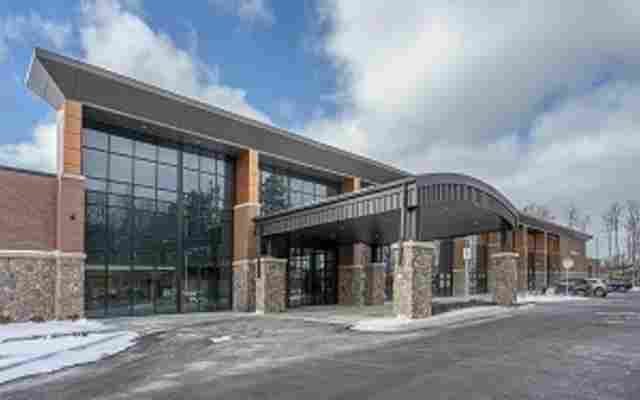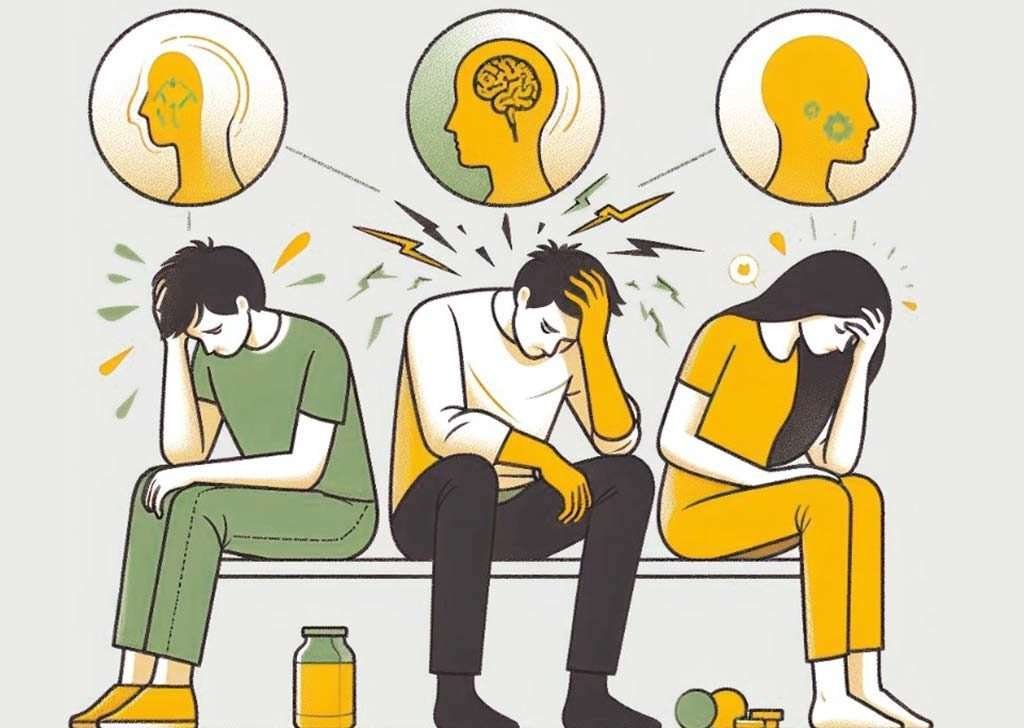**Depression Treatment Centers in USA 2025: A Path to Healing** If you or someone you care about is battling depression, you know how overwhelming it can feel. But here’s the good news: you don’t have to face it alone.
In 2025, depression treatment centers across the USA are offering more advanced, personalized, and effective care than ever before. Imagine walking into a place where experts truly understand what you’re going through—a place designed to help you heal, regain hope, and take back control of your life.
These centers are equipped with cutting-edge therapies, compassionate professionals, and supportive environments tailored to your unique needs. Are you ready to explore the options that could change your life or the life of someone you love? Keep reading to discover what makes these centers in 2025 stand out and how they can help you take the first step toward recovery.

Top Centers For Depression Recovery
Finding the right depression treatment center can be life-changing. In 2025, the USA has some of the most advanced and compassionate centers for depression recovery. These facilities combine cutting-edge therapies with personalized care to help you regain control of your life.
To make your search easier, we’ve highlighted some of the top centers in the country. Each offers unique programs tailored to different needs. Let’s dive into what makes these centers stand out.
1. McLean Hospital – Belmont, Massachusetts
McLean Hospital is renowned for its world-class psychiatric care. Their dedicated depression recovery program includes cognitive behavioral therapy (CBT), mindfulness-based stress reduction, and medication management.
What sets McLean apart is its focus on research-backed treatments. They also offer group therapy sessions, which help build a sense of community and shared understanding among patients.
2. Mayo Clinic – Rochester, Minnesota
Mayo Clinic combines medical expertise with holistic approaches to treat depression. Their team of psychiatrists, therapists, and wellness coaches work together to create a customized plan for each patient.
They also provide family education programs to help your loved ones better understand your journey. This support system can make a big difference in your recovery process.
3. Hazelden Betty Ford Foundation – Center City, Minnesota
Known for its comprehensive mental health services, Hazelden Betty Ford specializes in dual-diagnosis treatment. If you’re dealing with both depression and substance abuse, this center could be a great fit.
Their program integrates individual counseling, group therapy, and wellness activities like yoga and art therapy. They also offer aftercare services to help you maintain progress after leaving the center.
4. Resnick Neuropsychiatric Hospital – Los Angeles, California
Located at UCLA, Resnick Neuropsychiatric Hospital offers a variety of inpatient and outpatient services. Their depression recovery programs focus on therapies like transcranial magnetic stimulation (TMS) and electroconvulsive therapy (ECT) for treatment-resistant cases.
If traditional therapies haven’t worked for you, their innovative approaches might be worth exploring. Their team is committed to finding the right solution for every patient.
5. Sheppard Pratt – Baltimore, Maryland
Sheppard Pratt is one of the largest private psychiatric hospitals in the country. They offer a range of depression treatment options, from intensive outpatient programs to longer-term residential care.
They’re particularly known for their trauma-informed care approach, which considers the impact of past experiences on your mental health. This can be especially helpful if your depression is linked to unresolved trauma.
Choosing the right treatment center is a deeply personal decision. Think about what matters most to you—whether it’s location, specific therapies, or aftercare options. What do you want your recovery journey to look like?
The right center can provide the tools you need to move forward. Take the first step toward a healthier future today.
Key Features Of Leading Facilities
Depression treatment centers in the USA are evolving significantly by 2025. Leading facilities focus on providing tailored care to help individuals regain control over their lives. These centers feature specialized programs designed to address unique needs. Below are the key features that set them apart.
Personalized Treatment Plans
Top facilities create customized plans for every patient. They analyze medical history, lifestyle, and personal goals. Each plan includes therapies suited to individual needs. Patients receive care designed to target their specific challenges. This approach ensures effective and meaningful recovery.
Expert Medical Staff
Leading centers employ skilled doctors, therapists, and nurses. These experts specialize in treating depression and mental health conditions. They provide compassionate and informed care at every step. Continuous staff training ensures patients benefit from the latest practices. Their expertise makes recovery smoother and less stressful.
On-site Therapy Options
Modern treatment centers offer diverse therapy options on-site. Patients can access individual counseling, group therapy, or family sessions. These therapies help address emotional struggles and improve coping skills. Having everything under one roof ensures convenience and consistency. This setup encourages long-term healing and growth.
Innovative Therapies In 2025

Depression treatment centers in the USA are stepping into a new era of care in 2025. Traditional approaches like talk therapy and medication are now paired with cutting-edge treatments, giving patients more options than ever before. These innovations are not just changing how depression is managed—they’re reshaping lives.
Emerging Use Of Ketamine
Ketamine, once known primarily as an anesthetic, is now a game-changer in treating severe depression. Clinics across the USA are offering ketamine infusions or nasal sprays for patients who haven’t responded to other treatments. Many report feeling relief within hours, a remarkable shift from the weeks-long wait with antidepressants.
But ketamine is not a one-size-fits-all solution. Treatment centers emphasize careful monitoring and tailored dosing. If you’ve struggled with traditional therapies, is this an option worth exploring with your doctor?
Role Of Virtual Reality Therapy
Imagine using technology to rewire your brain—this is what virtual reality (VR) therapy is doing for depression. In 2025, VR headsets are becoming a staple in treatment centers, offering guided simulations that help patients confront fears or practice mindfulness. It’s therapy in a completely immersive way.
One patient shared how VR helped them navigate social anxiety by simulating public speaking scenarios. These controlled environments make it easier to tackle real-life challenges. Would you feel more comfortable addressing your struggles in a virtual world first?
Advancements In Tms Technology
Transcranial Magnetic Stimulation (TMS) has been around for years, but the technology has advanced significantly. In 2025, TMS sessions are shorter, more effective, and more accessible. The treatment uses magnetic pulses to stimulate parts of the brain linked to mood regulation.
Some centers now offer “personalized TMS,” adjusting the treatment to match your unique brain patterns. Patients often notice improvements after just a few weeks. If you’ve felt stuck in your depression journey, could TMS be the step forward you need?
These therapies are transforming how we think about mental health care. If you or someone you know is exploring treatment options, these innovations might be worth considering.
Holistic Approaches To Healing
Depression treatment centers in the USA are evolving, and 2025 promises a more comprehensive focus on holistic healing. Instead of just addressing symptoms, these centers are prioritizing the whole person—mind, body, and spirit. Holistic approaches are making treatment not just about recovery but also about building a sustainable, healthy lifestyle. Let’s explore some key practices transforming the way depression is treated.
Incorporating Mindfulness Practices
Mindfulness is no longer just a trendy buzzword—it’s a cornerstone of depression recovery. Treatment centers are teaching patients how to stay present, reducing the grip of negative thoughts. Techniques like deep breathing, guided meditation, and journaling are helping individuals regain control over their minds.
One patient shared that starting each day with five minutes of mindful breathing helped her feel calmer and more focused. Small steps like this can make a big difference. Have you ever tried pausing to simply notice your thoughts instead of reacting to them?
Nutrition And Mental Health
What you eat can significantly impact how you feel. Depression centers are bringing nutritionists on board to educate patients about the brain-gut connection. For instance, diets rich in omega-3 fatty acids, leafy greens, and whole grains are shown to support mental health.
One center even offers cooking classes to teach patients how to prepare mood-boosting meals. Imagine how empowering it would feel to know you’re fueling your recovery with every bite. Could your diet be a missing piece in your mental health puzzle?
Exercise As Part Of Treatment
Exercise is not just about fitness—it’s also a natural antidepressant. Many centers now include daily movement routines tailored to individual needs. Whether it’s yoga, walking, or light strength training, physical activity helps release feel-good chemicals like endorphins.
A patient once mentioned how a simple 15-minute walk on the center’s nature trail became her favorite part of the day. It gave her a sense of accomplishment and a break from intrusive thoughts. What would happen if you added just a little movement to your routine?
Holistic approaches are proving that recovery isn’t just about one solution. It’s about layering small, manageable changes that add up to a healthier life. Which of these practices feels like the right starting point for you?
Top States For Depression Centers
If you’re searching for effective depression treatment, location can make all the difference. Certain states in the U.S. have developed standout facilities and programs tailored for mental health recovery. Let’s look at three states leading the way in 2025.
California’s Leading Facilities
California is home to some of the most innovative depression treatment centers in the country. Cities like Los Angeles and San Francisco host clinics combining therapy, medication management, and holistic approaches like yoga and mindfulness. Many centers even offer personalized treatment plans, giving you care that fits your unique needs.
One example is the Pacific Health Center in Malibu, known for its serene environment and cutting-edge therapies. Would being surrounded by calming ocean views improve your recovery? California believes it might.
Florida’s Specialized Programs
Florida is making waves with its specialized programs for depression treatment. Many centers focus on group-based therapies, which can help you find a sense of community while healing. Others offer intensive outpatient programs, allowing you to continue daily life while receiving care.
In Miami, centers like Bright Future Clinic provide bilingual services, ensuring accessibility for diverse communities. Would connecting with people who share your language and experience make you feel more understood? Florida’s programs are designed with that in mind.
Innovations In Massachusetts
Massachusetts is a hub for innovation in mental health care. Many centers here collaborate with leading universities like Harvard and MIT to integrate research-backed treatments. You’ll find therapies like transcranial magnetic stimulation (TMS) and advanced cognitive behavioral therapy (CBT) widely available.
Boston’s Freedom Mental Health Center is a standout facility offering virtual reality therapy to help patients confront fears and improve mental resilience. Imagine using technology not just for entertainment but as a tool for healing. Massachusetts is proving it’s possible.
Which state sounds like the best fit for your needs? Whether it’s California’s holistic approach, Florida’s community-driven programs, or Massachusetts’ tech-forward therapies, the right choice can set the stage for your recovery journey.

Credit: recovery.com
Insurance And Accessibility
Accessing depression treatment centers in the USA can feel overwhelming. Many individuals worry about the cost and whether insurance will cover their needs. Understanding insurance and exploring affordable options is crucial. Financial assistance programs also help make treatment accessible to more people. This section will guide you through these key aspects.
Navigating Insurance Coverage
Many treatment centers accept a range of insurance plans. It’s important to check with your provider about coverage details. Some plans fully cover therapy, medication, or inpatient care. Others may require a copayment or have limits. Always ask about pre-authorization requirements to avoid surprises. Knowing your insurance benefits helps reduce financial stress.
Affordable Treatment Options
Not everyone has insurance that covers mental health treatment. Many centers offer sliding-scale fees based on income. This means you pay what you can afford. Community health clinics also provide low-cost counseling services. Online therapy platforms can be another budget-friendly option. These programs make care accessible without high costs.
Financial Assistance Programs
Financial aid programs can ease the burden of treatment expenses. Some centers offer scholarships or grants for low-income individuals. State-funded programs may also provide free or reduced-cost care. Nonprofit organizations sometimes help cover therapy costs. These resources ensure that financial barriers don’t block access to care.
Success Stories From Patients
Depression treatment centers across the USA have transformed countless lives. Patients who once felt trapped now share inspiring stories of recovery. These success stories highlight the impact of professional care and support networks. They remind us that healing is possible with the right help.
Real-life Recovery Experiences
Every patient’s journey is unique. Many share how therapy and medication changed their outlook. Group sessions provided them a space to open up without judgment. Some found hope through tailored programs addressing their specific needs. These stories inspire others seeking a path to recovery.
Impact Of Family Support
Family support plays a key role in healing. Patients often say loved ones made their journey easier. Encouraging words and understanding helped them stay motivated during tough times. Treatment centers also educate families to offer better emotional support.
Long-term Benefits Of Treatment
Effective treatment leads to lasting changes. Patients report improved relationships and better coping mechanisms. Many say they feel more in control of their emotions. They also notice positive shifts in their careers and daily life. These benefits highlight the importance of seeking help early.
Frequently Asked Questions
What Is The Best Mental Health Treatment Center In The Us?
The best mental health treatment center in the US varies based on individual needs. Renowned options include McLean Hospital, Mayo Clinic, and Johns Hopkins.
What Is The Last Resort Treatment For Depression?
Electroconvulsive therapy (ECT) is considered the last resort treatment for severe depression when other treatments fail.
Does Inpatient Treatment For Depression Work?
Yes, inpatient treatment for depression can be effective. It offers structured care, therapy, and medical support in a safe environment.
How Many Mental Health Centers Are There In The Us?
There are over 12,000 registered mental health treatment facilities in the United States, offering various services and support.
Read more our previous post for: Depression Recovery Centers / PCOS Vegan Diet / 2-Week Liquid Diet Menu / Best Elemental Diet Powder / Diet Dr Destin / Tretinoin And Vitamin C / Ace Medicare Supplement / Vitamin Packs for Women / Naomi Supplements / Supplement Funnel / Be a Better Mom / Stress Leave at Work / Hair loss is Genetic Or Stress / Stress Leave / Does Homework Cause Stress / Hema Contact Lens / Dr Contact Lens Promo Code / Marlo Contact Lens / trust issues / Mini Tummy Tuck / Newborn Baby Weight / 16-Week Ultrasound / Diabetes Care for Early stage / Metformin for Diabetes / Mattress for Arthritis / Affordable Healthcare / U.S. Healthcare / Sleep Deprived / Endometriosis Surgery Recovery Time
you can check: Fertility Calculator / BMI Calculator / BMR Calculator / Health Risks Calculator / Mental Health Hospital Quotes on Mental Health / Vanicream Vitamin C / Plastic Surgery Center / Vitamin D3 for Sexually
Read More: Ashwagandha Can Make You Horny / Vaginal Pump / Omron Blood Pressure / Vitamin C in Daily / vitamin D deficiency / magic wash laundromat / amphound / pixelxoom / cake ideas
Conclusion
Finding the right depression treatment center is an important step toward healing. The USA offers many options with tailored programs to meet diverse needs. Choosing a center that aligns with your goals can make a difference. Professional support ensures a safe and supportive recovery journey.
Take time to research and ask questions before making a decision. Remember, help is available, and recovery is possible. Start today by exploring the options near you. A healthier, brighter future is within reach.



